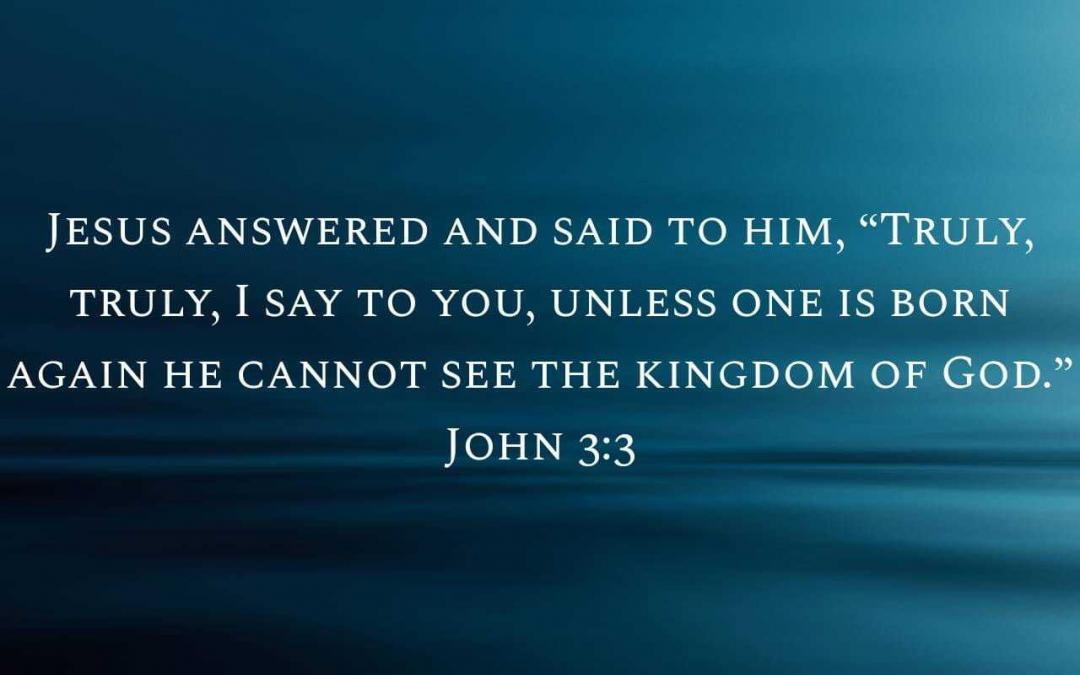
Lessons from the Life of Nicodemus

Where Can We Go for Healing, Promises, and Mercies of the Lord?
Introduction
We’ve all been there—wounded, hurting, and desperate for relief. Whether it’s the pain of a broken relationship, an illness that won’t let up, or the weight of past mistakes, we often wonder: Where can I go to find healing? The good news? God not only offers healing but also promises to walk with us through our pain, showing us His endless mercy along the way.
Background & Context
- In Jeremiah 30:17, God promises His people, “I will restore health to you and heal your wounds.” At a time when Israel felt abandoned and hopeless, God stepped in with a promise of restoration.
- Psalm 107:20 reminds us that God’s very Word brings healing: “He sent His word and healed them, and rescued them from their destruction.” Even in our darkest moments, His Word offers hope and healing.
Key Themes of Healing
1. Healing Comes from God Alone
Remember when you had that moment where nothing worked? Medicine, therapy, distractions—they helped for a while, but deep down, you still felt broken. God introduces Himself in Exodus 15:26 as Jehovah Rapha, “the Lord who heals.” His healing touches every part of us—body, mind, and soul.
Illustration: There’s a story of a woman who searched everywhere for a cure for her chronic illness. It wasn’t until she turned to God in faith that she found peace and healing—not just physically, but in her heart too.
2. God’s Promises Bring Healing
We all need something to hold on to when life feels unbearable. Isaiah 53:5 says, “By His stripes we are healed.” Jesus took on our pain so we could experience healing. His promises aren’t empty words—they’re a lifeline.
Illustration: A man haunted by his past mistakes found freedom when he clung to the promise of Romans 8:1: “There is no condemnation for those in Christ Jesus.” That promise healed his heart in ways nothing else could.
3. God’s Word is Medicine for Our Souls
Ever noticed how a single verse of Scripture can bring calm in the middle of chaos? Proverbs 4:20-22 calls God’s Word “life and health to all their flesh.” Immersing ourselves in His Word brings healing from the inside out.
Illustration: A soldier battling PTSD found unexpected peace when he started reading the Psalms every night. The words became a balm to his troubled mind.
4. Jesus is Still the Great Healer
Jesus didn’t just heal people when He walked the earth—He still heals today. In Matthew 8:16-17, He healed everyone who came to Him, showing us that healing is at the core of who He is.
Illustration: Think of the woman with the issue of blood (Mark 5:25-34). She was out of options, but one touch of Jesus’ garment changed everything. That same Jesus is still healing today, and He invites us to reach out to Him.
5. God’s Mercy Renews Every Morning
Healing doesn’t always happen overnight, and that’s okay. Lamentations 3:22-23 reminds us that “His mercies are new every morning.” Each day brings fresh grace, even when the journey is slow.
Illustration: A man recovering from addiction once said, “Some days were harder than others, but knowing that God’s mercy was new every morning gave me the strength to keep going.”
Practical Application
- Run to God First – When you’re hurting, go to Him in prayer and through His Word before turning to other sources.
- Hold On to His Promises – Write down verses on healing and read them often. Let them sink in.
- Believe in Jesus’ Power – Healing isn’t a thing of the past—Jesus still heals today.
- Trust His Timing – Sometimes healing is instant, sometimes it’s a process. Trust that God knows best.
- Lean on His Mercy Every Day – Healing is a journey, and God’s mercy is there every step of the way.
Conclusion
So, where can we go for healing, promises, and mercies? Straight to God. His Word heals, His promises sustain, and His mercies never fail. Whatever you’re facing today, know this—God is the ultimate healer, and He’s inviting you to experience His healing touch.

The death of Moses was Precious to God
1. The death of Moses was Precious to God
Moses, the faithful servant of God, led the Israelites out of Egypt and guided them through the wilderness for 40 years. His death was significant and precious in God’s eyes.
-
Deuteronomy 34:5-6 (NIV) – “And Moses the servant of the Lord died there in Moab, as the Lord had said. He buried him in Moab, in the valley opposite Beth Peor, but to this day no one knows where his grave is.”
(God Himself took care of Moses’ burial, showing how precious Moses was to Him.) -
Psalm 116:15 (NIV) – “Precious in the sight of the Lord is the death of his faithful servants.”
(This verse reminds us that the death of God’s servants is valuable and honored by Him.)
2. Grieving was a Reality for His Death
The people of Israel deeply mourned the loss of Moses, recognizing the magnitude of his leadership and love for them.
-
Deuteronomy 34:8 (NIV) – “The Israelites grieved for Moses in the plains of Moab thirty days, until the time of weeping and mourning was over.”
(The mourning period shows the profound grief and sorrow felt by the entire nation at Moses’ passing.) -
Ecclesiastes 3:1,4 (NIV) – “There is a time for everything, and a season for every activity under the heavens… a time to weep and a time to laugh, a time to mourn and a time to dance.”
(Grief is a natural and necessary process, even for the most faithful believers.)
3. Israel and Joshua Felt Like Orphans
With Moses gone, the Israelites and Joshua felt lost, like children without a father figure, unsure of their future.
-
Joshua 1:1-2 (NIV) – “After the death of Moses the servant of the Lord, the Lord said to Joshua son of Nun, Moses’ aide: ‘Moses my servant is dead. Now then, you and all these people, get ready to cross the Jordan River into the land I am about to give to them—to the Israelites.’”
(Joshua and the people faced uncertainty and fear after Moses’ death, feeling like orphans in their journey.) -
John 14:18 (NIV) – “I will not leave you as orphans; I will come to you.”
(Though spoken by Jesus to His disciples, this promise reflects God’s nature – never leaving His people alone in their grief and uncertainty.)
4. The Lord Encouraged and Clarified the Direction
God did not leave Joshua and Israel in despair but provided clear direction and encouragement to move forward.
-
Joshua 1:5-6 (NIV) – “No one will be able to stand against you all the days of your life. As I was with Moses, so I will be with you; I will never leave you nor forsake you. Be strong and courageous, because you will lead these people to inherit the land I swore to their ancestors to give them.”
(God assured Joshua of His presence, just as He was with Moses, giving him the courage to lead.) -
Isaiah 41:10 (NIV) – “So do not fear, for I am with you; do not be dismayed, for I am your God. I will strengthen you and help you; I will uphold you with my righteous right hand.”
(God’s encouragement is a constant reminder that His strength and guidance are always with His people.) -
Proverbs 3:5-6 (NIV) – “Trust in the Lord with all your heart and lean not on your own understanding; in all your ways submit to him, and he will make your paths straight.”
(This verse reinforces the need to trust in God’s direction, especially during times of loss and transition.)

Lessons from Peter Walking on Water
Passage: Matthew 14:22-33
Introduction
Life often feels like sailing into storms—unexpected struggles, uncertainties, and fears. The story of Peter walking on water teaches us how faith triumphs over fear when we keep our eyes on Jesus.
Background & Context
After feeding the 5,000, Jesus sends His disciples ahead by boat while He retreats to pray. A fierce storm arises at night, and Jesus walks on water toward them. Peter, eager yet wavering in faith, steps out but starts sinking when he focuses on the wind. Jesus rescues him, demonstrating His power over nature and the necessity of unwavering trust.
Key Lessons
-
Jesus Led the Disciples to Journey Alone (v. 22-24)
- Jesus intentionally allowed the disciples to face the storm without Him physically present. Faith grows when tested.
- Illustration: A parent teaching a child to ride a bike may step back, not to abandon, but to help them grow.
-
Jesus Spent Time in Prayer Alone (v. 23)
- Even in ministry, Jesus prioritized prayer. Strength for storms comes from time with the Father.
-
The Reality of Facing Winds (v. 24)
- Life’s difficulties (winds) can be overwhelming, even when we’re in God’s will.
-
Jesus in the Midst of the Storm (v. 25-27)
- Jesus arrives at the right moment, reminding them, “Take courage, it is I; do not be afraid.”
-
Peter’s Eagerness to Be with Jesus (v. 28-29)
- Faith begins with a desire to step out. Peter trusted initially, and Jesus honored his boldness.
-
Peter Seeing the Wind and Fear (v. 30)
- When Peter shifted focus from Jesus to circumstances, fear overtook him.
- Lesson: Fear grows when we focus on problems more than on Christ.
-
Jesus Expected Peter Not to Doubt (v. 31)
- “You of little faith, why did you doubt?” Jesus wants a faith that withstands storms.
-
Jesus Rescues and Calms (v. 32-33)
- Jesus immediately saves Peter and stills the storm. Worship follows faith.
Practical Application
- When facing storms, stay focused on Jesus, not the circumstances.
- Faith is not just about starting well but trusting till the end.
- Prayer prepares us for storms; make time with God a priority.
- Even if we sink, Jesus is always near to rescue.
Conclusion
Faith requires stepping out, fixing our eyes on Jesus, and trusting Him even when the winds rise. No storm is stronger than His presence. Will you walk in faith or sink in fear?


